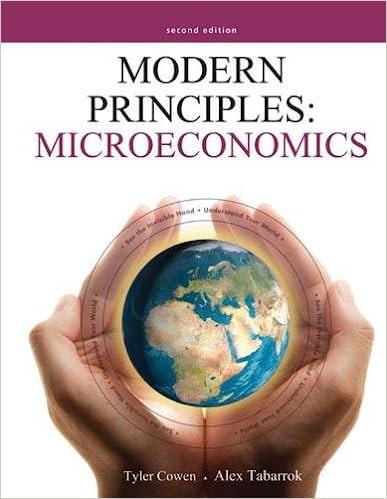1.1. Is rational ignorance the whole explanation for why voters allow programs like the sugar quota to...
Question:
1.1.
Is rational ignorance the whole explanation for why voters allow programs like the sugar quota to persist? Perhaps not. In the early 1900s, the government of New York City was controlled by a Democratic Party organization known as Tammany Hall. In a delightful essay entitled "Honest Graft and Dishonest Graft" by George Plunkitt, one of the most successful politicians from the Tammany machine, he argued that voters actually approve of these kinds of government-granted favors. (The essay and the entire book, Plunkitt cf Tammany Hall:
A Series cf Very Plain Talks on Very Practical Politics, are available for free online.)
For example, Plunkitt said that ordinary voters like it when government workers get paid more than the market wage: "The Wall Street banker thinks it is shameful to raise a [government]
clerk's salary from $1500 to $1800, but every man who draws a salary himself says, 'That's all right. I wish it was me.' And he feels very much like votin' the Tammany ticket on election day, just out of sympathy."
a. Plunkitt said this in the early 1900s. Do you think this is more true today than it was back then, or less true? Why?
b. If more Americans knew about the sugar quota, do you think they would be outraged?
Or would they approve, saying, "That's all right, I wish it was me"? Why?
c. Overall, do you think that real-world voters prefer a party that gives special favors to narrow groups, even if those voters aren't in the favored group? Why?
Step by Step Answer:

Modern Principles Microeconomics
ISBN: 9781429239998
2nd Edition
Authors: Tyler Cowen, Alex Tabarrok






